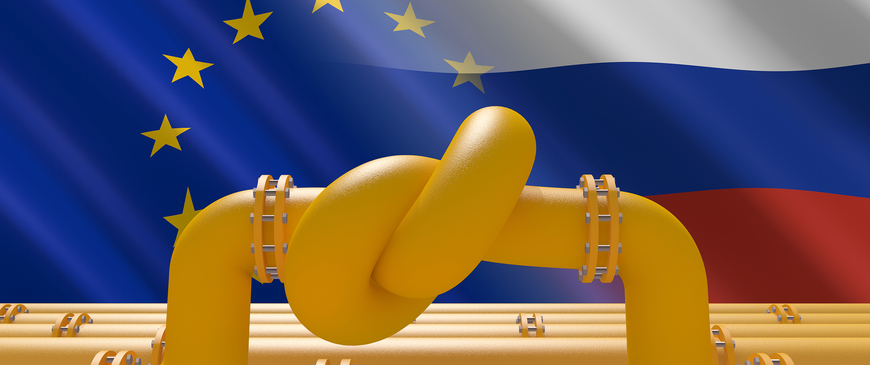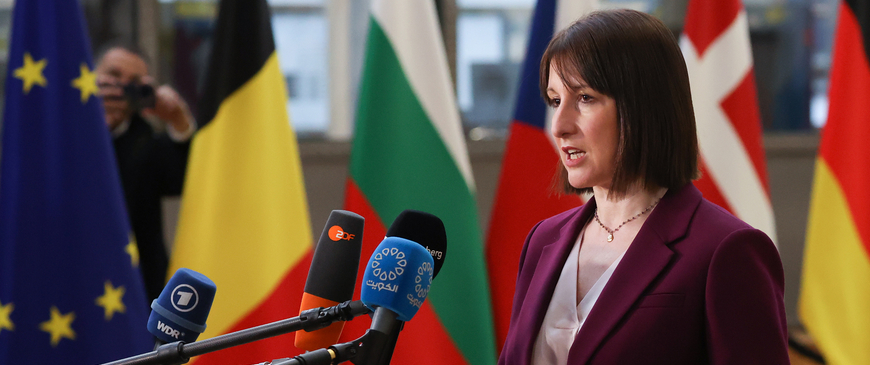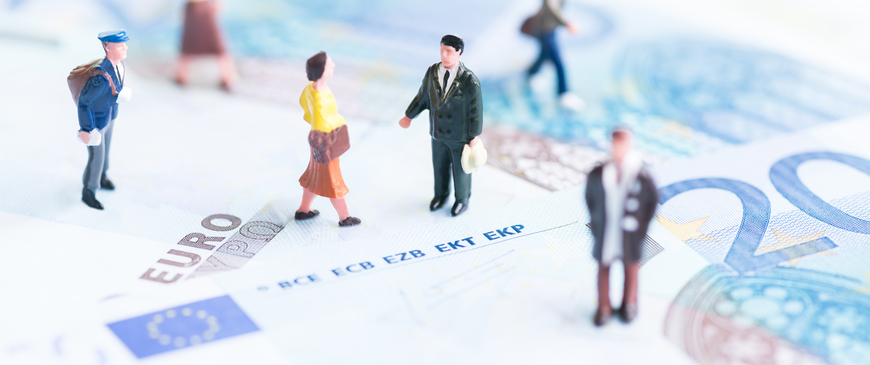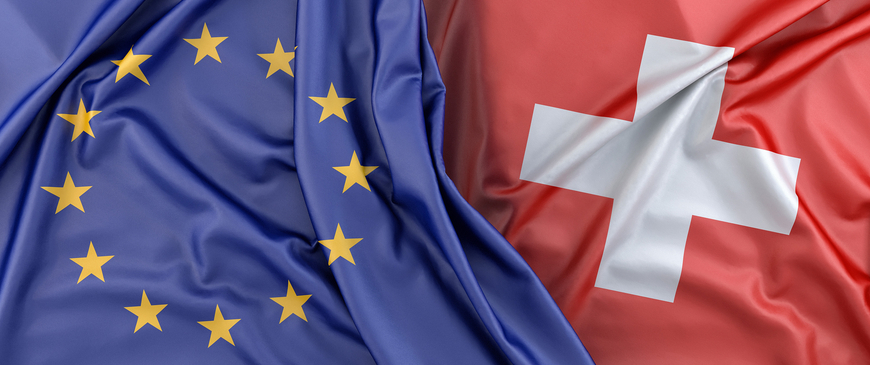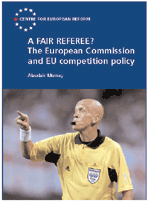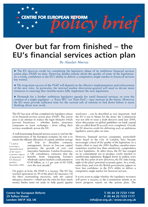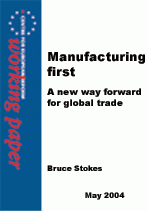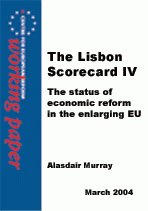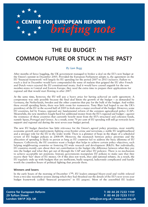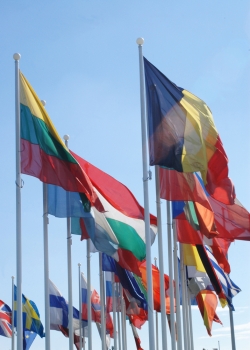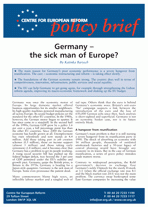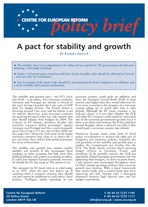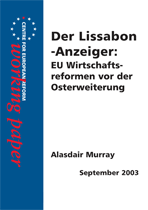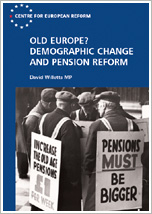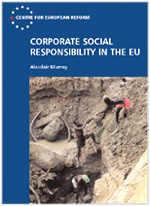Single market, competition & trade
A fair referee? The European Commission and EU competition policy
01 October 2004
The EU's policies for enforcing competition and restricting state subsidies are among its biggest success stories. But the way the European Commission conducts these policies is coming under attack.
Over but far from finished - The EU's financial services action plan
01 September 2004
The EU has now all but completed the legislative phase of its financial services action plan (FSAP). The action plan is an attempt to reduce the legal obstacles which prevent businesses – whether banks, insurance companies or stock exchanges – from selling their services seamlessly across the EU.
Is tax competition bad?
02 August 2004
EU enlargement was meant to be a cause for celebration. But one seemingly esoteric issue is threatening to spoil the fun: taxation. West Europeans fear that low tax rates in the new member-states will lure companies eastward, taking jobs and investment with them.
Issue 37 - 2004
30 July 2004
- The recipe for a successful Commission, Alasdair Murray
- Is tax competition bad?, Katinka Barysch
- The peculiarities of the British, Charles Grant
Manufacturing first: A new way forward for global trade
07 May 2004
Global trade negotiations inside the WTO remain stalled. Recently, negotiators have talked up the prospects for progress in the 'Doha development round' – but no one is expecting an imminent breakthrough.
Raising the quality of Europe's higher education
01 April 2004
European universities are in urgent need of reform. They have a crucial role to play in helping the EU to achieve its goal of becoming the 'most competitive knowledge-based economy in the world'.
Issue 35 - 2004
26 March 2004
- Raising the quality of Europe's higher education, Richard Lambert
- A European public prosecutor would be a dangerous distraction, Mónica Roma
- Serbia and the EU, Charles Grant
The Lisbon scorecard IV: The status of economic reform in the enlarging EU
05 March 2004
With cynicism, even derision – this is how many Europeans look at the EU's key economic target, namely to become the "most competitive and dynamic, knowledge-based economy in the world" by 2010.
The EU budget: Common future or stuck in the past?
06 February 2004
The EU's common budget is small and rather rigid. Most of its outlays are determined years in advance, and most of them go on just two policies, namely support for farmers and poorer regions. Yet the EU budget invariably attracts acrimonious debate and close scrutiny out of all proportion to its economic significance.
Policing public sector aid
02 February 2004
Europe's powerful public sector trade unions are campaigning to protect public services from the disciplines of EU competition and state aid laws.
Issue 34 - 2004
30 January 2004
- Jobs for the boys, Steven Everts
- Poland: the EU's new awkward partner, Heather Grabbe
- Policing public sector aid, Alasdair Murray
Is Europe working?
01 January 2004
With more than 14 million people out of work, unemployment is the EU's greatest economic problem. However, while EU policy-makers ponder Germany's 4.3 million unemployed, Britain's low labour productivity and Italy's greying workforce, they have missed one of Europe's key labour market challenges: eastward enlargement.
If the EU's labour market statistics...
If the EU's labour market statistics...
Germany – the sick man of Europe?
05 December 2003
Germany was once the economic motor of Europe. Its large domestic market offered business opportunities for its smaller neighbours. Its high-quality machines powered manufacturing all across Europe. Its sound budget policies set the standard for the other EU countries. In the 1980s, however, the German motor began to sputter. It...
Issue 33 - 2003
28 November 2003
- Is Europe working? , Katinka Barysch
- Should Britain hold a referendum on the EU Constitution?, Steven Everts and Charles Grant
- A joined-up EU security policy , Daniel Keohane and Adam Townsend
A pact for stability and growth
03 October 2003
The stability and growth pact – the EU’s fiscal rule book – is in tatters. The eurozone’s largest countries, Germany and France, are in breach of the pact, having exceeded the 3 per cent of GDP limit for budget deficits in 2002 and 2003. Theyare likely to do so again...
If it's broken, fix it!
01 October 2003
Europeans are right to worry about their economy. Forecasters think that the eurozone economy will grow by a paltry 0.5 per cent this year. But the real problem is that Europe's sluggish performance is part of a long-term trend.
Issue 32 - 2003
26 September 2003
- If it's broken, fix it! , Katinka Barysch
- A clean break for Europe , Nick Butler
- The EU must be tougher and more creative on Iran, Steven Everts
Der Lissabon-Anzeiger: EU Wirtschaftsreformen vor der Osterweiterung
05 September 2003
Als sich im März 2000 die EU-Staatschefs zum Gipfel in Lissabon versammelten, schien Europas Wirtschaft am Anfang eines neuen goldenen Zeitalters zu stehen. Die Wachstumsraten waren die höchsten seit nahezu einem Jahrzehnt.
Old Europe? Demographic change and pension reform
05 September 2003
US Defence Secretary Donald Rumsfeld was onto something when he classified the current EU countries as 'old Europe'. Germany, France and Italy together will have more than 70 million people over 60 in 2040. The fact that Europeans are leading longer, healthier lives is to be welcomed. The problem is...
Corporate social responsibility in the EU
11 July 2003
Europe wants faster growth. But it also wants social fairness and a healthy environment. This is why companies in the EU are under growing pressure to broaden their focus from pure profits to policies of corporate social responsibility (CSR).

